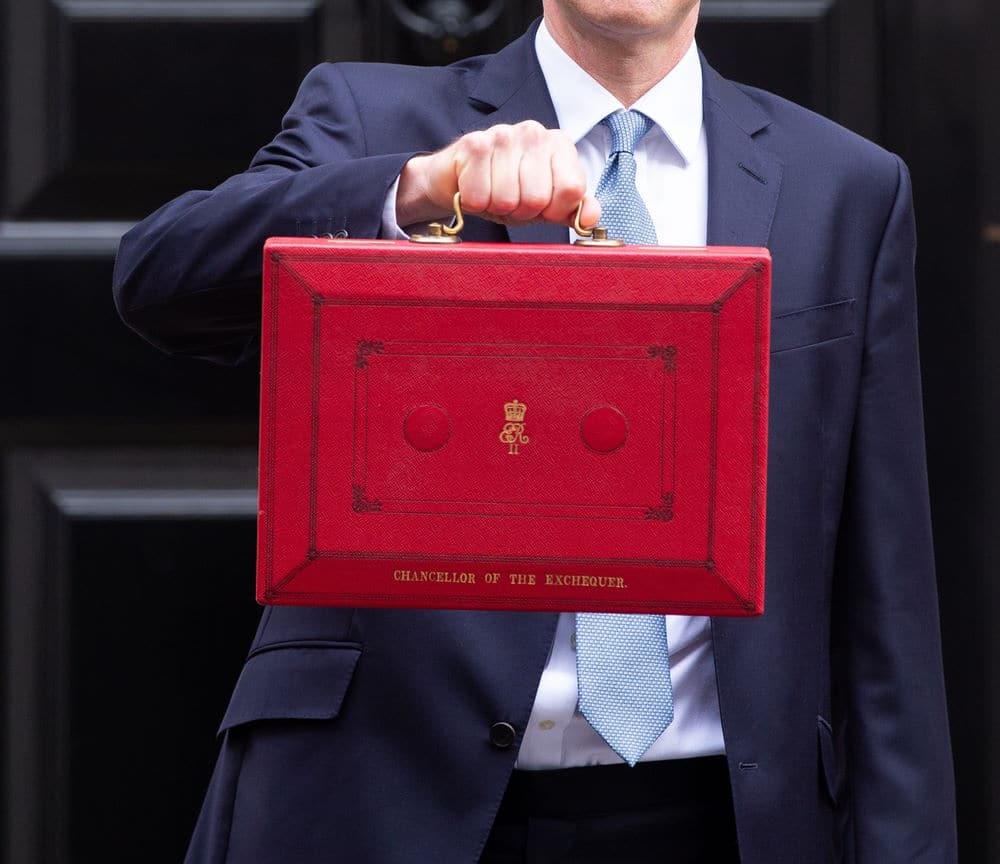Chancellor Jeremy Hunt presented the 2023 Spring Budget amid a backdrop of tumult – mass industrial action, high inflation, and a cost-of-living crisis.
Hundreds of thousands of workers staged strikes on Budget Day, many gathering in London for a protest rally.
The Chancellor proceeded to present “a Budget for growth”, and he’ll need businesses to deliver on that.
The Budget focused on getting people back into the workforce, but it appears to have done little to inspire confidence among small and medium-sized businesses – the backbone of much of the UK economy.
While some strategies, such as new investment zones, were largely welcomed, other measures and lack of support in some areas disappointed SMEs.
Here, we examine why the Chancellor’s first Budget has met with these mixed reactions, and how Government key tax and spending policies for the 2023-2024 financial year could affect your business.
Investment zones
The Chancellor announced 12 new entrepreneurial investment zones – all outside the South of England – which will benefit from a range of tax relief measures.
These areas are expected to include Liverpool, Greater Manchester, Teesside, the West Midlands, East Midlands, the North East, West Yorkshire and South Yorkshire.
Local councils in these new investment zones will work with research universities specialising in innovation clusters.
The investment zones are seen generally as a welcome albeit long-overdue measure. But there’s concern that the south coast is conspicuous by its absence, particularly Southampton, a beacon of scientific and technological innovation.
Corporation tax rise
Pre-Budget calls to scrap a proposed increase in Corporation Tax were rejected by the Chancellor.
His reasoning was that previous efforts to keep corporation tax low had not increased investment as effectively as countries with higher headline rates.
Corporation tax has increased from 19 percent to 25 percent for businesses making an annual profit of more than £250,000.
Those with profits between £50,000 and £250,000 will pay between 19 percent and 25 percent. There’s no change in the basic rate of 19 percent Corporation tax for businesses making profits of less than £50,000.
Full capital expensing
Full capital expensing allows businesses to immediately deduct the total cost of investments in plant, machinery, and IT equipment.
The Government hoped the policy would ease concerns over the increase in corporation tax, but observers say its benefits will only apply to larger businesses. Small businesses already getting the annual investment allowance (AIA) would see no further relief.
Research and development tax support
SMEs that devote 40 percent or more of their expenditure to research and development will be able to reclaim £27 for every £100 spent on R&D – an increase of £8.40.
This will primarily benefit loss-making SMEs in sectors such as pharmaceutics and life sciences, and tech enterprises developing artificial intelligence and machine learning.
This R&D tax support is expected to attract and retain more world-leading talent and help provide the materials essential to develop technologies to place the UK in the vanguard of science and innovation.
Free childcare
As part of Government policy to get people back into work, Spring Budget 2023 introduced free childcare for toddlers under three. The move not only benefits parents but also helps businesses keep a skilled workforce.
The snag is that this support won’t be rolled out in its entirety until deep into 2025. It also raises the question of whether the Conservatives will still be in power to see it through.
Meanwhile, SMEs desperate to attract and keep talent will see no material difference for a year. And parents will continue to face high childcare fees throughout the next 12 months of the cost-of-living crisis.
Budget impact on small businesses
Corporation tax increases won’t affect SMEs, whose profits are typically far below the £50,000 threshold. The Government says only 10 percent of companies will pay the higher rate of 25 percent corporation tax.
But small businesses see little if any additional benefit in full capital expensing. And they point out that the free childcare measures offer no immediate help.
While R&D tax support has been widely welcomed, business on the south coast have been left wondering why they’re missing out.
Other Budget announcements aimed at tackling labour shortages included a relaxation on immigration rules for some jobs in the construction sector – bricklayers, roofers, and carpenters. Retail and hospitality businesses were disappointed this didn’t apply to them.
Is the economy on the right track?
Jeremy Hunt insists the economy is on the right track with Government policies to lower inflation, reduce national debt, and increase growth.
But Opposition leader Sir Keir Starmer said the UK was heading down a path of managed decline – the sick man of Europe falling behind its competitors again.
Liberal Democrats said the Chancellor was offering empty words for the millions of people struggling to make ends meet.
But what was the verdict from small businesses on the Budget?
Reactions to the Budget from the small business community
Small businesses are feeling let down by what they see as lack of support from the Chancellor.
The Federation of Small Businesses (FSB) said the Budget had snubbed small firms, which continued to feel undervalued and overlooked. Although the Budget contained some positives, it had left many feeling short-changed and left behind due to lack of support in core areas, including energy costs.
The British Chambers of Commerce (BCC) saw full capital expensing as a step in the right direction to offset corporation tax rises. But the organisation was less happy with the failure to address concerns over rising energy costs for businesses, despite repeated pressure to do so.
The British Independent Retailers Association (BIRA) gave a guarded welcome to new investment zones and increased capital tax allowances for investment. It said these measures wouldn’t necessarily address the long-term problems faced by high street traders.
Budget watchdog predictions
Immediately after the Chancellor’s Budget statement, independent watchdog the Office for Budget Responsibility (OBR) published updated forecasts and analysis on the economy.
The OBR predicted the UK would now avoid a recession in 2023, although it would still see the biggest decline in living standards since the 1950s.
Despite ongoing global instability, the Budget watchdog expects UK inflation to fall from 10.7 percent at the end of 2022 to 2.9 percent by the end of 2023. Unemployment is expected to rise to 4.4 percent.



